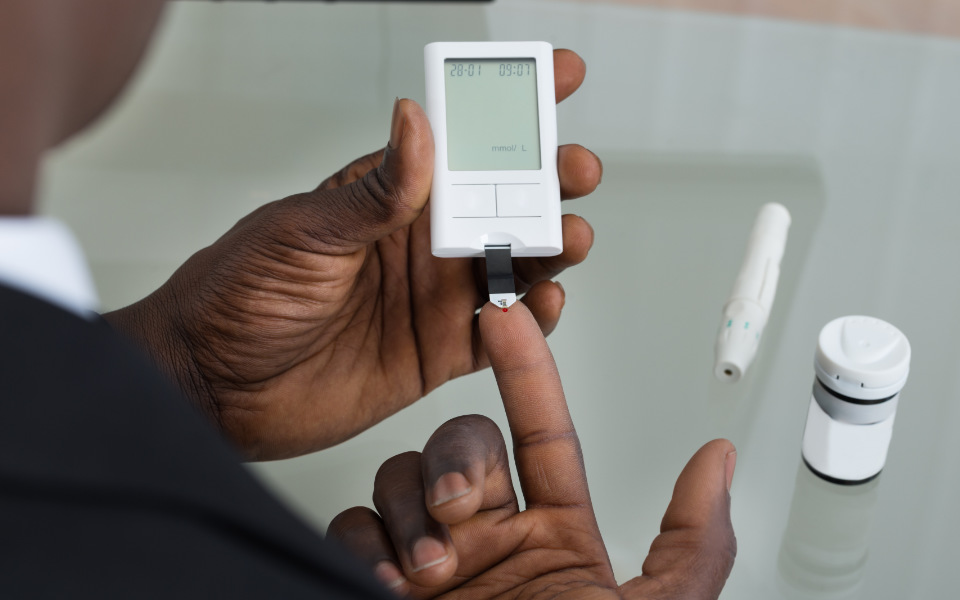Creatine is one of the most widely used dietary supplements globally, popular among athletes and non-athletes alike for its ability to increase power, strength, muscle mass, and overall physical performance. This naturally occurring compound, found in small amounts in certain foods and synthesised by the body, has gained significant attention in the fitness world and various clinical settings.
Diabetes, a metabolic disorder described by elevated blood glucose levels, has reached epidemic proportions worldwide. The condition affects millions of people and poses a significant health and economic burden on societies across the globe. Type 2 diabetes has seen a dramatic increase in prevalence due to factors such as sedentary lifestyles, poor dietary habits, and rising obesity rates.
This article explores the fascinating relationship between creatine supplements and diabetes management. Recent research has suggested that creatine may potentially be therapeutic in glucose management and could serve as a promising intervention for people with diabetes, specifically when combined with exercise [1]. As we explore this connection, we’ll examine the current scientific evidence, potential benefits, and important considerations for those with diabetes who may be considering creatine supplements.
Understanding Creatine

Creatine is a naturally occurring compound in the human body and certain foods, mainly meat and fish. It’s essential for energy production, especially during high-intensity, short-duration activities [2].
1. Common Uses
Creatine is an organic acid composed of three amino acids: L-arginine, glycine, and L-methionine [3]. It’s primarily used as a dietary supplement to:
- Increase muscle mass and strength
- Enhance athletic performance
- Improve exercise recovery
- Boost high-intensity exercise capacity
2. Mechanism of Action
Creatine’s primary function in the body is to help produce energy rapidly:
- It’s converted to phosphocreatine in muscle cells.
- Phosphocreatine is a quick energy reserve, helping regenerate adenosine triphosphate (ATP) – the body’s primary energy currency.
- This process allows muscles to maintain high-intensity output for longer periods [4].
In addition, creatine may enhance muscle growth by:
- Increasing water content in muscle cells
- Reducing muscle breakdown
- Potentially boosting muscle-building hormones
3. Popularity Among Athletes and Non-Athletes
Creatine is one of the most popular and widely researched sports supplements globally:
- Athletes: It’s particularly favoured by those in power sports like weightlifting, sprinting, and wrestling. Many professional athletes use creatine to enhance performance and recovery [5].
- Non-athletes: Creatine has gained popularity among non-athletes for its potential cognitive benefits and muscle-building properties. Some research suggests it may improve brain function, especially in older adults.
- Medical applications: Creatine is being studied for potential benefits in treating various medical conditions, including muscular dystrophy, Parkinson’s disease, and depression.
The supplement’s widespread use is due to its effectiveness, relatively low cost, and strong safety profile. However, as with any supplement, it’s important to consult your healthcare provider before use, especially for people with pre-existing health conditions.
What is Diabetes?

Diabetes is a metabolic disorder distinguished by elevated blood glucose levels. There are two main types of diabetes: Type 1 and Type 2.
1. Type 1 Diabetes
Type 1 diabetes is an autoimmune condition where the body’s immune system mistakenly attacks and destroys the insulin-producing beta cells in the pancreas [6]. This results in little to no insulin production, requiring daily insulin administration for survival. Key features of Type 1 diabetes include:
- Usually diagnosed in children and young adults, but can occur at any age [7].
- Accounts for about 5-10% of all diabetes cases [8].
- Symptoms often develop rapidly and can be severe.
- Cannot be prevented with current knowledge.
2. Type 2 Diabetes
Type 2 diabetes is distinguished by insulin resistance and/or insufficient insulin production. It’s the most common form of diabetes, accounting for about 90-95% of all cases. Key features include:
- Often develops in adults, but is increasingly seen in children and adolescents [9].
- Strongly associated with lifestyle factors such as obesity and lack of physical activity.
- Symptoms may develop gradually over time.
3. Insulin and Glucose Metabolism
Insulin plays a crucial role in regulating blood glucose levels:
- It allows cells to uptake glucose from the bloodstream for energy.
- In Type 1 diabetes, the lack of insulin means glucose cannot enter cells, leading to high blood sugar levels.
- In Type 2 diabetes, cells become resistant to insulin’s effects, or the body doesn’t produce enough insulin to maintain normal glucose levels.
4. Diabetes Challenges
Managing diabetes presents several ongoing challenges:
- Blood Sugar Control: Maintaining optimal blood glucose levels to prevent complications while avoiding dangerous lows (hypoglycaemia).
- Lifestyle Changes: Balancing diet, exercise, and medication to achieve good glycemic control.
- Preventing Complication: Regular monitoring and early intervention to prevent or manage diabetes-related complications.
- Following Treatment: Ensuring patients consistently follow their treatment plans, including medication, blood sugar monitoring, and lifestyle changes.
- Mental Impact: Addressing the mental health aspects of living with a chronic condition, including diabetes distress and depression.
- Access to Care: Ensuring all patients have access to necessary medications, supplies, and healthcare services.
- Emerging Technologies: Integrating new diabetes management tools, such as continuous glucose monitors and automated insulin delivery systems, into patient care.
- Patient Education: Providing comprehensive diabetes self-management education to empower patients in their daily care.
These challenges underscore the complexity of diabetes management and the need for ongoing research and innovative approaches to improve outcomes for people living with diabetes.
What are Creatine Benefits for Diabetes?
Creatine supplement shows promising potential benefits for diabetes, specifically when combined with exercise. Here are the main ways creatine may help improve glucose metabolism and glycemic control in diabetes:
1. Improving Glucose Metabolism
Creatine appears to enhance glucose uptake in muscle cells through several mechanisms:
- It may stimulate insulin secretion, as demonstrated in vitro studies, though human studies have not consistently shown this effect [10].
- Creatine supplements can improve muscle glycogen stores, which helps remove glucose from the bloodstream.
- It may increase the expression and translocation of GLUT-4 glucose transporters to the muscle cell surface, facilitating greater glucose uptake.
The role of GLUT-4 translocation is particularly crucial. When muscle tissue contracts during exercise, GLUT-4 transporters move to the cell surface and assist in removing glucose from the blood into muscle cells. Creatine supplements enhance this process and improve glucose disposal and insulin sensitivity.
2. Exercise and Creatine
The combination of creatine supplements and exercise shows even greater promise for improving glycemic control in diabetes:
- Exercise alone induces numerous metabolic benefits, including increased insulin-independent muscle glucose uptake and improved insulin sensitivity [11].
- When creatine is combined with exercise training, it may result in additional improvements in glucose metabolism compared to either intervention alone.
- The proposed mechanism is an enhanced glucose transport into muscle cells via increased GLUT-4 translocation to the cell membrane.
Studies have demonstrated improved glycemic outcomes in Type 2 diabetes patients using creatine and exercise:
- A significant double-blind trial found that Type 2 diabetes patients consuming 5g of creatine per day along with a mixed exercise program (aerobic and resistance training) showed a significant reduction in HbA1c levels compared to a placebo group over 12 weeks.
- Another study by Gualano and colleagues observed that creatine supplements combined with exercise training improved glycemia in sedentary people and those with Type 2 diabetes.
These findings suggest that creatine supplements, especially with regular exercise, could be a promising intervention for improving glucose management in diabetes.
Insights from Scientific Studies

Scientific evidence on creatine’s effects on diabetes and glucose metabolism has yielded mixed results, with animal studies showing more promising outcomes compared to human studies.
1. Animal Studies
Animal studies have demonstrated several positive effects of creatine on insulin secretion and hyperglycaemia:
- In vitro studies showed that creatine increases insulin secretion in isolated rat pancreas and mouse islets [12].
- Creatine supplement increased circulating insulin levels and improved the insulinogenic index in Type 2 diabetes rat models.
- In transgenic mice with Huntington’s disease, creatine supplements resulted in a significant reduction in hyperglycaemia and delayed the onset of diabetes.
- Goto-Kakizaki rats (a Type 2 diabetes model) supplemented with creatine for eight weeks showed an improvement in the insulinogenic index, attributed to a reduction in insulinemia.
However, not all animal studies have shown positive results. In a study using rats with severe muscle wasting and insulin resistance, creatine supplements aggravated hyperglycaemia and hyperinsulinemia.
2. Human Studies
Human studies have shown mixed results regarding creatine’s impact on insulin sensitivity and glucose metabolism:
- Studies involving healthy and Type 2 diabetes adults did not show increased insulin secretion when creatine was provided alone or with exercise training.
- A study on chow-fed rats showed that prolonged creatine supplement (4-8 weeks) significantly elevated peak insulin response to a glucose challenge and increased fasting insulin levels [13].
- After 8 weeks of supplement, glucose tolerance was affected, with peak plasma glucose elevated in the creatine-supplemented group.
3. Notable Studies and Trials
Several studies have examined creatine’s role in diabetes management:
- A double-blind trial found that Type 2 diabetes patients consuming 5g of creatine per day with a mixed exercise program showed a significant reduction in HbA1c levels compared to a placebo group over 12 weeks [14].
- Gualano and colleagues observed that creatine supplements with exercise training improved glycemia in sedentary people and those with Type 2 diabetes.
- A study by Op’t Eijnde et al. on Goto-Kakizaki rats showed improved insulin sensitivity in the skeletal muscle of insulin-resistant rats after creatine supplement.
- A study on chow-fed rats demonstrated that creatine supplements for 8 weeks increased pancreatic total creatine content and altered insulin secretion and glucose homeostasis [15].
While these findings suggest potential benefits of creatine in glucose management and diabetes, mainly when combined with exercise, more large-scale, long-term human studies are needed to fully establish its efficacy and safety as an anti-diabetic intervention. The differences between animal and human studies highlight the need for further research to understand the complexities of creatine’s effects on glucose metabolism in different populations and conditions.
Health and Safety Considerations
When it comes to creatine supplements for people with diabetes, safety concerns primarily revolve around kidney health and general safety considerations. Here’s an overview of the current evidence and recommendations:
1. Kidney Health
There have been longstanding concerns about creatine’s potential impact on kidney function, especially in diabetics who are already at increased risk for kidney problems. However, recent research has provided reassuring evidence:
- A randomised, double-blind, placebo-controlled trial found that creatine supplements did not impair kidney function in type 2 diabetic patients [16].
- The study showed no significant differences in 51Cr-EDTA clearance (a measure of kidney function) between creatine and placebo groups after 12 weeks of supplements.
- Creatinine clearance, serum and urinary urea, electrolytes, proteinuria, and albuminuria were all unchanged with creatine supplements [17].
These findings suggest that creatine supplements do not adversely affect kidney function in people with type 2 diabetes, at least in the short term.
2. General Safety
While creatine appears to be safe for most diabetic individuals, there are some important considerations:
- Creatine supplements may affect blood glucose levels, so it’s crucial for diabetics to monitor their blood sugar closely when using creatine.
- People with diabetes should consult their healthcare provider before starting creatine supplements, especially if they have any pre-existing kidney issues.
- It’s recommended to start with a lower dose and gradually increase to assess individual tolerance and response.
- Staying well-hydrated is important when using creatine supplements.
- Regular kidney function tests should be performed as part of the diabetes management routine, specifically if using creatine for the long term.
3. Recommendations for Creatine Use in Diabetics
- Consult with a healthcare provider before starting creatine supplements.
- Start with a lower dose (e.g., 3g per day) and monitor blood glucose levels closely.
- Maintain proper hydration while using creatine.
- Continue regular kidney function tests as part of diabetes management.
- Consider combining creatine supplements with exercise for potential synergistic benefits on glucose control.
While the current evidence suggests that creatine is generally safe for people with diabetes, more long-term studies are needed to fully establish its safety profile in this population. As with any supplement, individual responses may vary, and close monitoring is essential.
Conclusion
The potential role of creatine in diabetes management is an intriguing area of research that has shown promising results, particularly when combined with exercise. As we’ve explored throughout this article, creatine supplements may offer several benefits for people with diabetes:
- Improved glucose uptake in muscle cells
- Enhanced insulin sensitivity
- Better glycemic control, especially when combined with regular exercise
- Potential improvements in muscle mass and strength, which can contribute to overall metabolic health
These potential benefits suggest that creatine could be a valuable addition therapy in diabetes management, specifically for those who can engage in regular physical activity.
However, it’s important to balance these potential benefits against the current limitations in our understanding:
- While animal studies have shown consistently positive results, human studies have been more mixed.
- Long-term effects of creatine supplements in diabetic populations are not yet fully understood.
- Individual responses to creatine may vary, and not all people with diabetes may experience the same benefits.
Despite these limitations, the current evidence suggests that creatine supplements are generally safe for most people with diabetes, including those with normal kidney function. Concerns about adverse effects on kidney health have not been substantiated by recent research, which is reassuring for those considering creatine use.
The balance between benefits and risks appears to favour creatine as a potentially useful supplement for many individuals with diabetes, especially when used with exercise. However, this balance may shift depending on individual health status, diabetes management goals, and other personal factors.
As we look to the future, there is a clear need for ongoing research in this area. Larger, long-term studies are necessary to fully establish the efficacy and safety of creatine supplements in diabetes management. These studies should explore various dosing regimens, examine effects in different diabetic populations (including Type 1 diabetes), and investigate potential interactions with other diabetes treatments.
For diabetics considering creatine supplements, the importance of personalised medical advice cannot be overstated. Everyone’s diabetes management plan is unique, and the decision to incorporate creatine should be made in consultation with a healthcare provider who can consider all relevant factors, including:
- Current diabetes management and control
- Overall health status, including kidney function
- Exercise habits and fitness goals
- Potential interactions with other medications or supplements
In conclusion, while creatine shows promise as a potential tool in diabetes management, it should be approached thoughtfully and with proper medical guidance. As research in this area continues to evolve, we may gain a clearer understanding of how to best use creatine to improve outcomes for individuals living with diabetes. Until then, a cautious but open-minded approach, guided by personalised medical advice, seems most appropriate for those considering creatine supplements as part of their diabetes management strategy.
Stay Informed & Inspired with Our Newsletter
Sign up for our newsletter to stay informed about the latest updates, episodes, helpful tips and strategies for diabetes management and holistic wellness.


